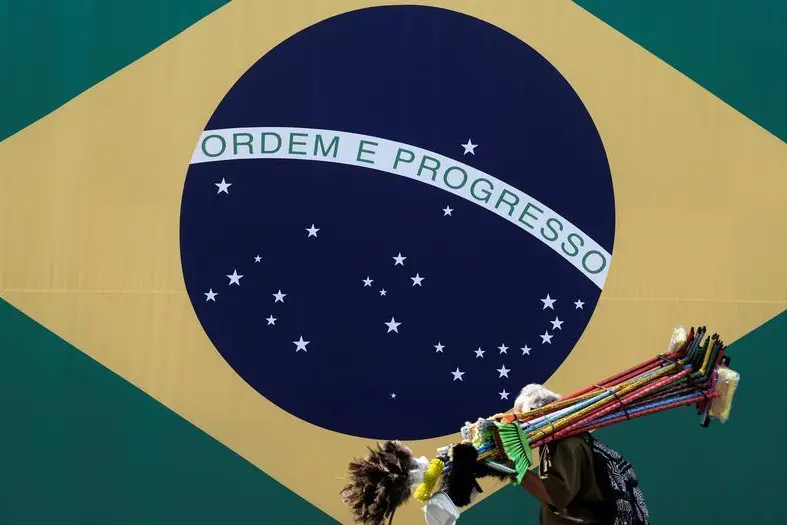PHOTO
BRASILIA - Brazil's government debt as a share of gross domestic product ended 2022 at its lowest level in more than five years, central bank data showed on Monday, helped by nominal economic growth and net public debt redemptions.
The country's gross debt fell to 73.5% of GDP in December from 74.6% in November, accumulating a 4.8 points contraction in the year, to its lowest ratio since July 2017, when it reached 73.2%.
The reduction was mainly led by a nominal rise in GDP, which is also affected by inflation.
Economists weekly polled by the central bank now estimate a 3% rise in 2022 GDP, after starting last year forecasting a mild 0.3% growth.
Latin America's largest economy has shown more vigor than initially expected on the back of solid service activity, an improved job market and government fiscal stimulus ahead of a presidential election in October.
But the impressive gross debt reduction was also helped by public net debt redemptions, as the Treasury chose to reduce bond issues while Brazil's benchmark interest rate was aggressively hiked to battle inflation.
Prepayments of state-run development bank BNDES debts with the Treasury also helped to reduce the need for bond issuance, as well as the government's own primary result.
The country's public sector recorded a primary deficit of 11.8 billion reais ($2.3 billion) in December but a 126 billion reais surplus for 2022, its second straight positive annual print and best result for a year since 2011.
The solid annual performance came just two years after the record 2020 deficit of 703 billion reais, boosted by pandemic spending.
The 2022 result was mainly due to the 64.9 billion reais primary surplus of states and municipalities. Meanwhile, the central government posted a 54.9 billion reais surplus, and state-owned companies a 6.1 billion reais surplus.
($1 = 5.1078 reais)
(Reporting by Marcela Ayres; Editing by Steven Grattan)





















